Author: Communication Department
A message from Elsa Taquet, Legal Advisor
“You robbed me of my childhood and killed my parents. Now you must answer for your crimes and face justice.”
It is with these words that Dimitri*, who became a child soldier at the age of 9, concluded his testimony, looking straight at his tormentor: the Congolese warlord “Sheka.” I remember that, in the courtroom specially designed to prevent the rebel chief from escaping, we all held our breath. The community had endured more than 4 years of terror and atrocities. No one could believe that Sheka—who remains very influential in the region—was, in fact, being prosecuted.

Having been on the ground in the Democratic Republic of the Congo since the beginning of the trial, I can tell you that the road to justice was long and difficult: two years of proceedings, testimony from hundreds of victims, procedural vagaries, and significant security challenges. The long wait for a verdict—even though it may be a sign that justice is being administered properly—is extremely difficult for victims.
As a legal advisor working on the ground, I support and accompany both victims and their lawyers. We must remember, despite the uncertainty that characterizes such complex cases, that justice is always possible.
Here, justice prevailed: no one is above the law. Not even Sheka. This is a huge victory for hundreds of victims. It also sends a strong message to other militiamen who have committed atrocities. But the fight is far from over. Enforcing the judgment will be a colossal challenge in the DRC, where court-ordered reparations are hardly ever paid to victims.
Elsa Taquet, Legal Advisor, Great Lakes Program
PS: Join us again in a few days to learn about the challenges encountered by our team in Bosnia-Herzegovina. Stay tuned!
*real name withheld
On 3 December 2020, former member of the elite Gambian paramilitary unit Michael Correa appeared before a US District Court in Colorado, as part of a preliminary hearing. He has been accused of acts of torture committed in The Gambia on behalf of the administration of former President Yahya Jammeh. However, due to the complexity of the case, its international focus and the pandemic, the case will probably not move forward for some time.
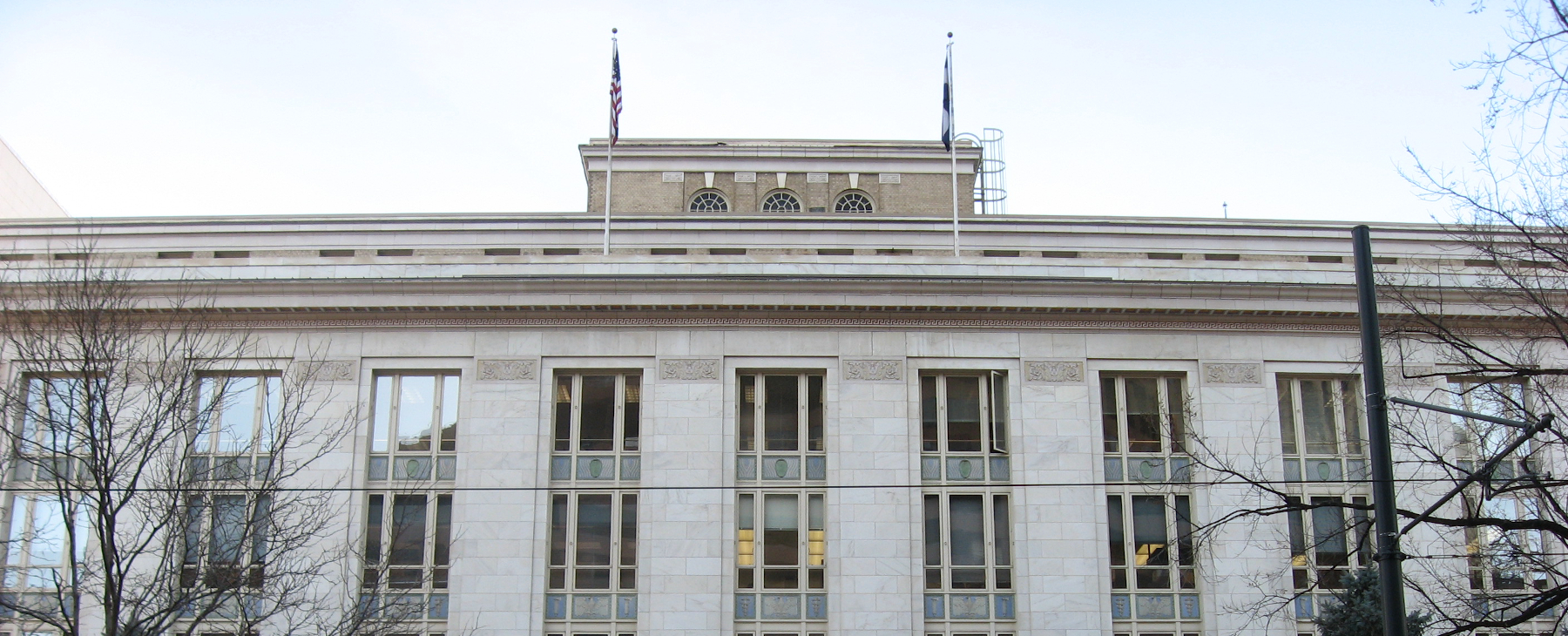
On Thursday 3 December 2020, Michael Sang Correa, 41 years old, appeared before the judge via video teleconferencing, from the prison where he is being held. Because of the restrictions on visits due to the Covid-19 pandemic, he has not been able to see his lawyers in person so far. Defense lawyers have therefore argued that they may not be able to represent him within the 180-day time limit set by the court.
There have also been delays in the investigation, including difficulties in tracking down and finding individuals in The Gambia. Combined with the logistical challenges of getting witnesses to the United States – which was already a complicated process before the pandemic –, the chances are that the trial, that was originally set to take place in early 2021, will not begin until next summer at the earliest.
Correa is believed to have been a member of the Junglers, the notorious death squad of former Gambian President Yahya Jammeh. These shock troops, formed in the mid-1990s, were allegedly involved in cases of enforced disappearances, extrajudicial killings, sexual violence, torture and arbitrary detention. In its indictment, the United States Department of Justice (DOJ) alleges that Michael Correa is responsible for the torture of at least six people in 2006, as well as conspiracy to commit torture, following an attempted coup against the former Gambian head of state.
Correa has also been implicated in other crimes carried out by the Jammeh government. In The Gambia, former “Junglers” told the Truth, Reconciliation and Reparations Commission (TRRC) that Correa participated in the execution of a former head of intelligence and four of his associates in April 2006. He is also believed to have been involved in the killings of two journalists, as well as nine detainees in 2012 and two Gambian and American dual nationals.
The indictment of Michael Correa is the first prosecution of a member of Jammeh’s death squads anywhere in the world. It is only the second case – after former President Charles Taylor’s son– to be tried by US officials under the federal extraterritorial torture statute, since its statute on torture committed outside the country was introduced in 1994.
After nearly 28 years, the survivor of a rape committed during the war in Foča finally saw her two attackers convicted in the first instance verdict. On 3 December 2020, the Court of Bosnia and Herzegovina sentenced Radovan Paprica “Papro” and Slavko Ognjenović “Mačak” to eight years in prison each for crimes against humanity, as well as a compensation of approximately 19,000 Euros to the victim.
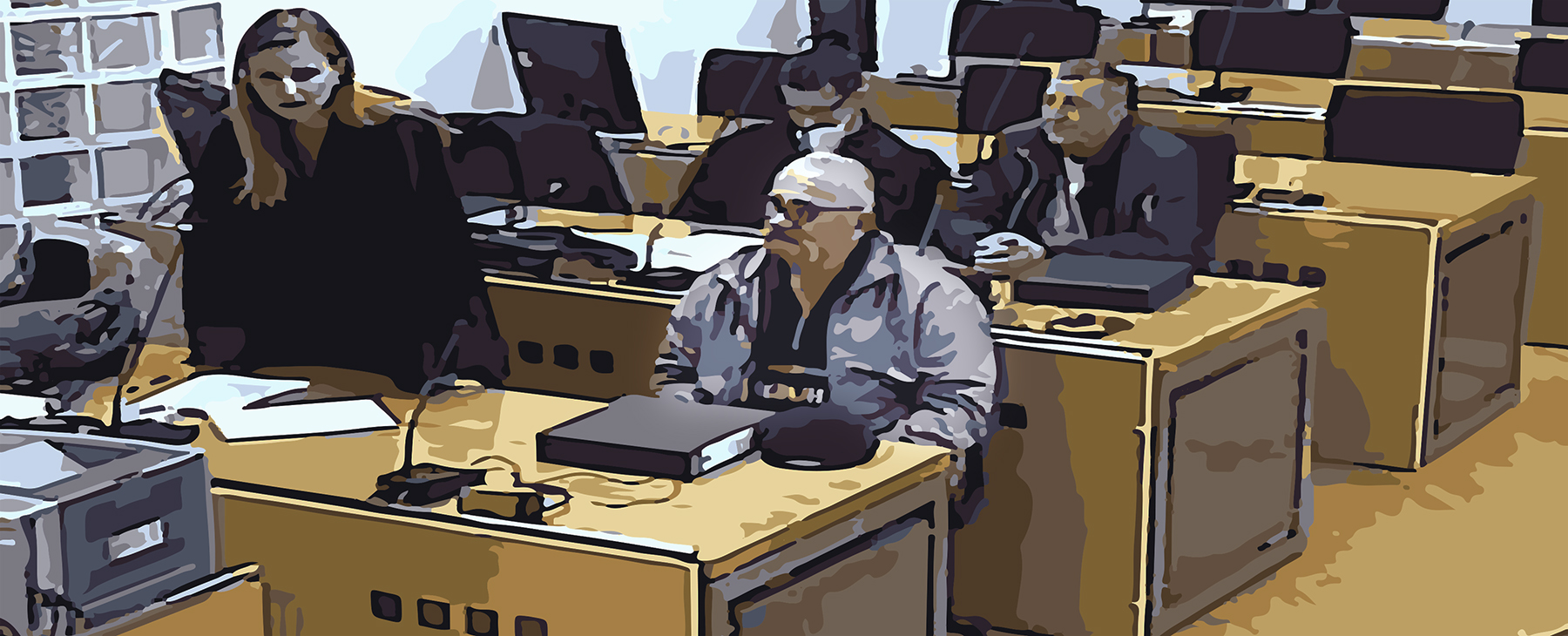
“We are glad to see that one more impunity case meets justice, even 28 years after the crime had happened”, said Selma Korjenić, TRIAL International’s Head of program in Bosnia and Herzegovina (BiH). In recent years, TRIAL International has encouraged the survivor in her fight for justice by offering her legal support, and helped the authorities to identify and prosecute those responsible.
According to the court, the relatively mild sentence – the legal minimum for this type of charge being ten years in prison – is justified, among other things, by the “particularly correct” behavior of the defendants during the proceedings. The defendants were also exempted from court fees due to poor financial situation. Nevertheless, the court ordered the defendants to pay compensation to the survivor of 37,000 BAM – nearly 19,000 Euros – as reparation for the physical and mental suffering she endured.
This verdict came in a particular context, when prosecution of war crimes is being hindered by the Covid-19 pandemic. The beginning of the year 2020 has been marked by uncertainty about the capacity of the judicial system to prosecute these cases. “This verdict is a clear sign that with perseverance, it is possible to obtain justice even in times of pandemic,” said Selma Korjenić.
As the trial against Alieu Kosiah opens in Bellinzona, many welcome Switzerland’s commitment to international justice. But for one case that results in a trial, how many others get lost in the corridors of the prosecutors’ offices? Philip Grant, Executive Director of TRIAL International, looks back at the “forgotten” cases brought by the organization he founded.
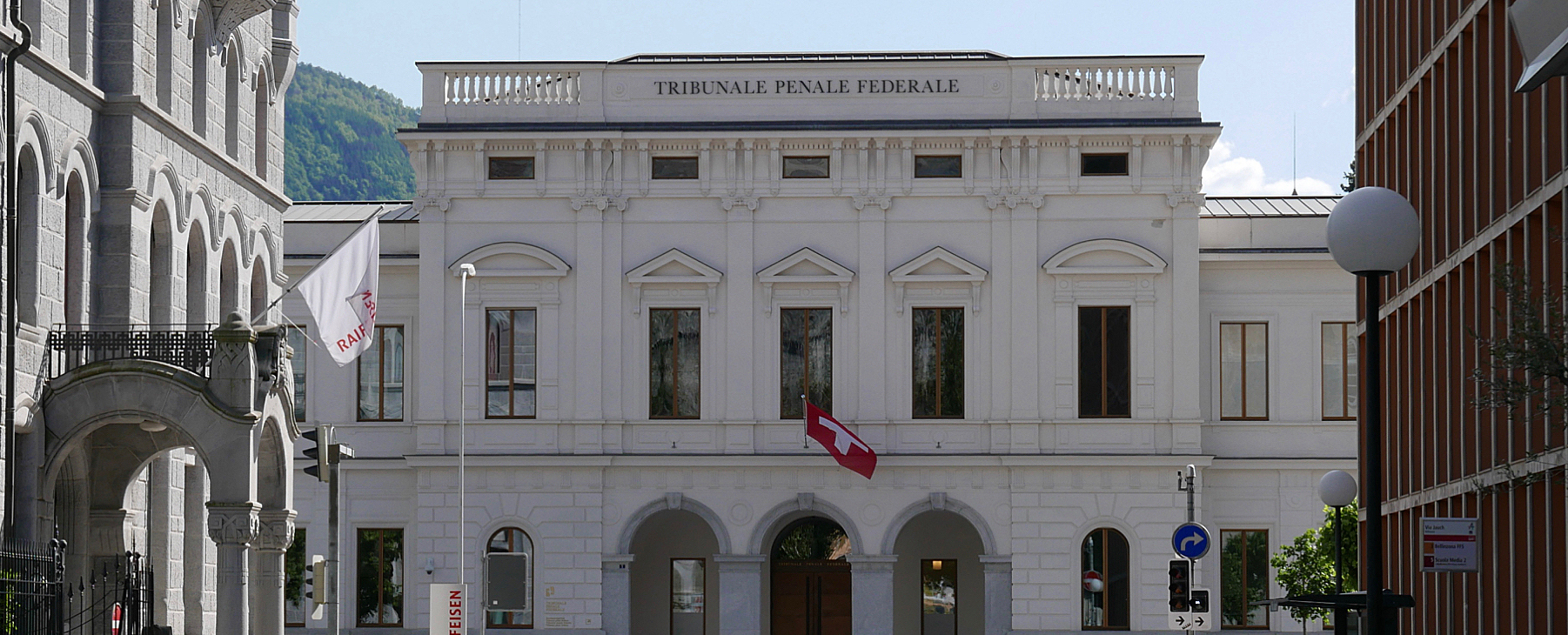
“The opening of this trial is excellent news. It has been twenty years since the last one was held in Switzerland,” said Grant. “We have recently heard how great it was that Switzerland was doing so much. I’d rather say: It’s a shame so little has been done.” Since the creation of TRIAL International in 2003, no less than 20 cases involving international crimes have been submitted to the various cantonal, federal and even military authorities. These include crimes allegedly committed in Algeria, Afghanistan, Bosnia, Colombia, the DRC, Gambia, Guatemala, Libya, Sri Lanka, Syria and Tunisia, among others.
“NGOs now expect from the next Attorney General clear, followed-up commitments so that the pending trial does not remain the exception that proves the rule”
The case against former Guatemalan police chief Erwin Sperisen was one of the most high-profile examples. It led to a judicial saga that lasted nearly a decade, culminating in a guilty verdict and a 15-year prison sentence. Another case, against former Gambian Interior Minister Ousman Sonko, is still being investigated by the Office of the Attorney General (OAG). However, while a few cases have been prosecuted, many others have either been outright dismissed or are grinding to a halt. According to some observers, it might even be a prosecutorial strategy to simply wait for those suspects who are already quite old – such as the Algerian Khaled Nezzar or the Syrian Rifaat al-Assad – to escape justice by the sheer passing of time.
Delays and dismissals
Two decades ago, Switzerland acted as a pioneer in judging – and eventually sentencing – for the first time a Rwandan genocidaire according to the principle of universal jurisdiction. So how to explain the apparent fatigue of Swiss prosecutors? The OAG, which since a legislative reform in 2011 handles the majority of these cases, is of course not solely responsible for the failure or the slow pace of some of these proceedings. “There were times when leaks allowed the suspect to evade prosecution,” recalls Philip Grant. For instance, a former Algerian minister, expected at a public event in Fribourg, managed to escape arrest at the last moment. TRIAL International had compiled a file against him and helped a torture victim to file a complaint against him. But as Fribourg’s justice system was preparing to hear him upon his arrival in the canton, the individual concerned had turned tail and took flight shortly after his arrival at Geneva airport. Someone had obviously tipped him off.
In other cases, the reluctance of prosecuting authorities to act decisively lurked behind strange legal reasoning, as in a case against a Somali suspect. The case was closed on the ground that human rights NGOs such as Amnesty International “had not considered it relevant to refer the case to the Office of the Attorney General”. Or through mysterious prevarication, as in the case of Rifaat al-Assad: it took an urgent appeal to the Federal Criminal Court to force the prosecutor in charge of the case, who was reluctant to travel to Geneva, to pay the suspect a visit in his 5-star hotel and proceed at last with his audition. This way of dragging one’s feet is a source of distress for NGOs and stuns many foreign prosecutors, who would like no better than to work on cases of such importance.
Civil Society to the Rescue
Nevertheless, the role of NGOs in the prosecution of perpetrators of international crimes is fundamental. This is what TRIAL International is striving to do, but also Civitas Maxima, without whose efforts the trial that is about to begin in Switzerland would certainly never have taken place. Thanks to the work of these organizations, the States, including Switzerland, are regularly reminded of their obligations. In addition to international justice mechanisms such as the International Criminal Court, States are indeed bound to prosecute perpetrators of international crimes according to the principle of universal jurisdiction. However, prosecutors who are willing to act often do not have the means to monitor the human rights record and whereabouts of many potential criminals. This is where NGOs step in, by sharing the results of their investigations.
But the OAG, like similar prosecuting authorities in other countries, does not have unlimited resources. On the contrary, they tend to be scaled down “It is essential for the OAG to be adequately resourced in order to carry out its mandate,” says Grant.
“It is a political decision, and Switzerland’s lack in decisiveness to correctly staff and fund this work is real. NGOs now expect from the next Attorney General clear, followed-up commitments so that the pending trial does not remain the exception that proves the rule”.
A message from Emeline Escafit, Legal Advisor, International Investigations and Litigation
For more than 20 years, Yahya Jammeh and his elite paramilitary unit, the Junglers, ruled the small West African nation of The Gambia with an iron fist. Extrajudicial executions, acts of torture, and enforced disappearances, the Gambian people endured decades of abuse. Today, victims are demanding justice. Will it be rendered?
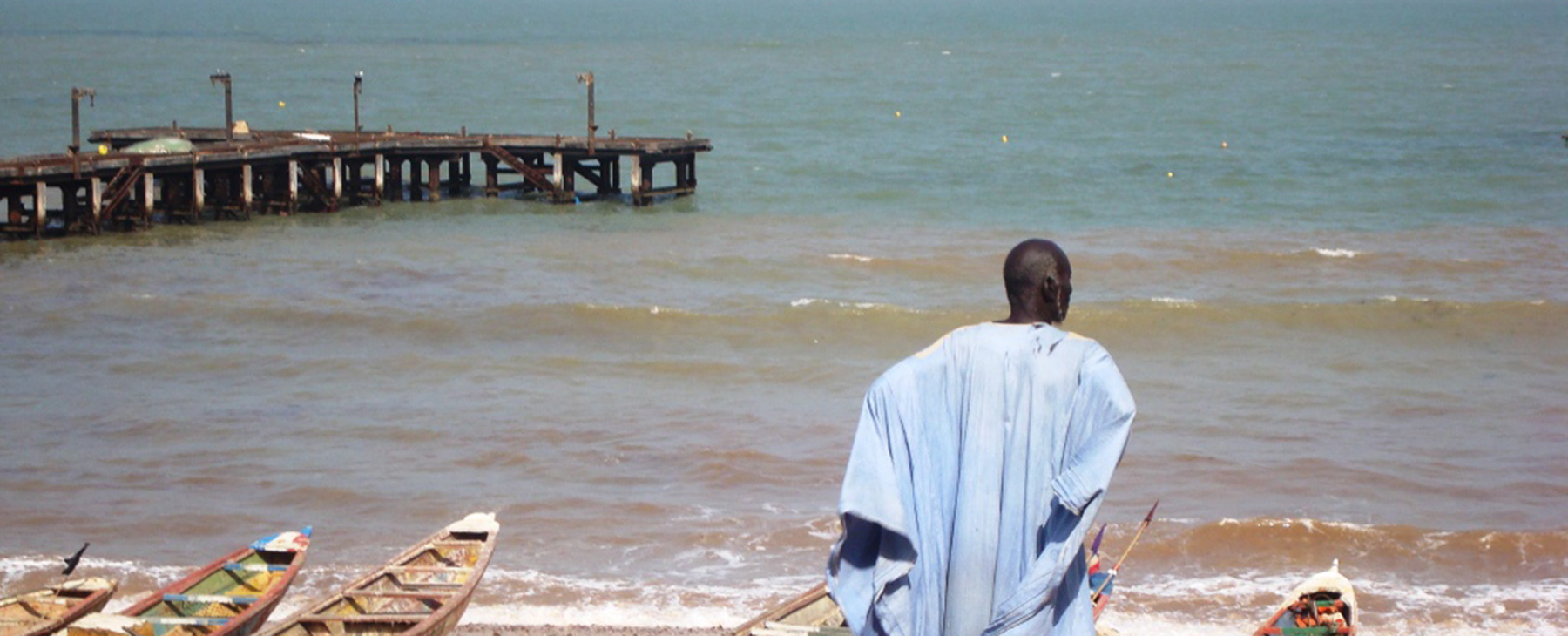
We have reason to hope so! In 2021, Michael Sang Correa, a suspected member of the Junglers, will go on trial in the United States. This trial is historic: it is the first time an alleged member of these death squads is prosecuted anywhere in the world. As a result of the investigations conducted in The Gambia by TRIAL International and its partners, victims will finally be able to make their voices heard in order to win justice! But the road ahead is long. Please join us in supporting the victims of Yahya Jammeh’s brutal regime: donate today.
Perpetrators of international crimes must not be allowed to avoid prosecution by fleeing to another country. The Correa case represents a major advance in international justice. But it is also essential that the Gambian people be able to follow the trial and remain informed of the developments in a case that directly concerns them. That is why they need you. On this global day of generosity, let’s make justice a reality for all, starting now!
Before I let you go, I would like to take this opportunity to invite you to the virtual photography exhibit of the NGO ANEKED. In collaboration with the organization, we are honoring hundreds of victims of Yahya Jammeh’s regime: “The Duty to Remember” is a must-see!
Sincere thanks,
Emeline Escafit, International Investigations and Litigation
PS: Next week, you’ll discover the incredible Sheka trial, a landmark case in the Democratic Republic of the Congo, as told by my colleague on the ground. Stay tuned!
It has been 14 years since the signing of the Comprehensive Peace Accord which formally ended the armed conflict. However, Nepal has made no real progress in securing access to justice, truth and reparations for the victims of gross human rights violations during its 10-year conflict.
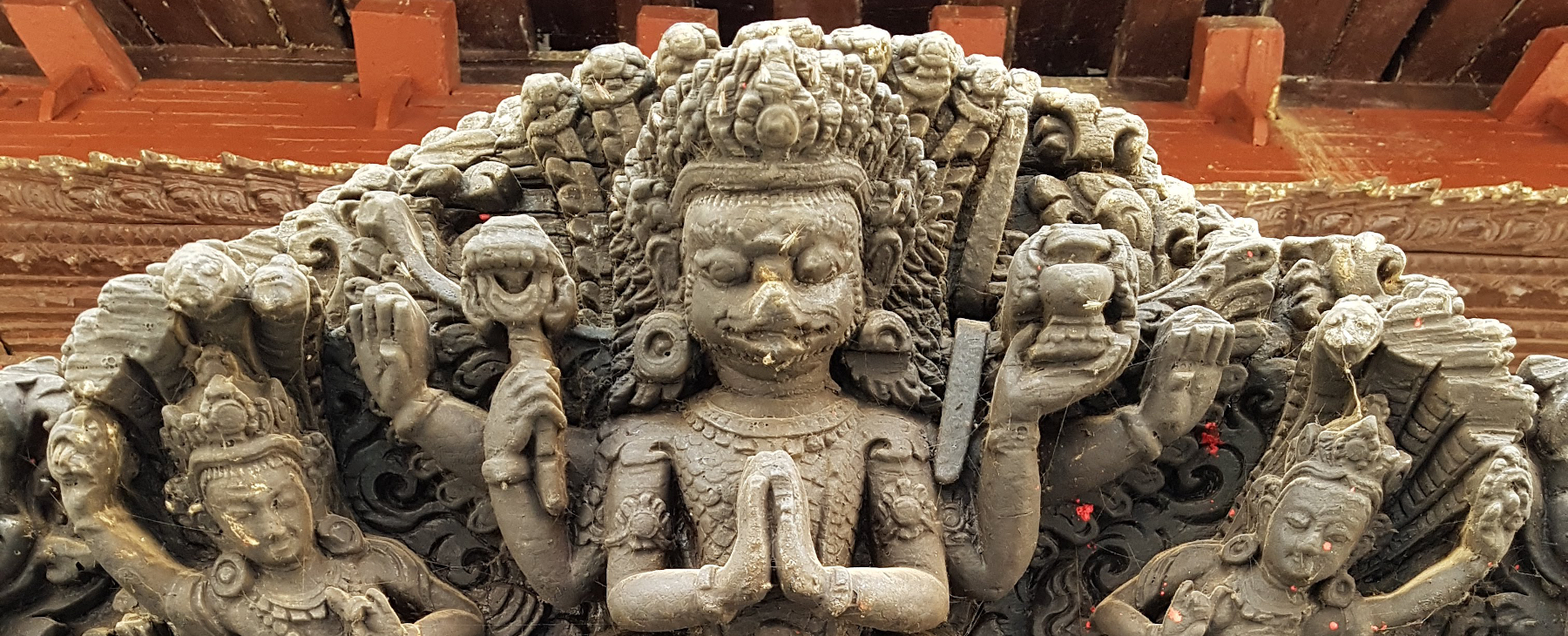
In January 2020, despite the concerns repeatedly expressed by civil society organizations on a politically biased process of appointment, new commissioners for the Truth and Reconciliation Commission and the Commission on Investigation of Enforced Disappearance of Persons were nominated and the tenure of both commissions was extended for the fourth time by one more year.
(…) In October 2020, a day after Nepal was reelected for a second term as a member of the United Nations Human Rights Council, the National Human Rights Commission published a list of 286 people, including former top government and security officials that were implicated in serious human rights violations and were never held accountable for their crimes.
In the past twenty years, the National Commission recommended action in 1’195 cases of rights violations of which 940 were conflict related. 87% of them remain either partially implemented or not implemented at all. This only shows that the government is not serious in answering the plight for justice of victims of the armed conflict and their families, despite its repeated promises to do so.
(…) The Human Rights and Justice Center (TRIAL International’s sister organization in Katmandu) calls on the government of Nepal to honor the commitments undertaken 14 years ago upon signature of the Comprehensive Peace Accord and eventually amend the transitional justice laws, bringing them in line with international standards. It also calls on invigorating the transitional justice process by making it transparent to ensure justice, truth and reparations to the victims.
Read the full statement on the website of the Human Rights and Justice Center
Geneva/Goma, 23 November 2020. For immediate release.
Two years almost to the day after its opening, the case against the warlord Sheka and his accomplice Lionceau has come to an end. The former Nduma Defense of Congo (NDC) militiamen have been condemned to life imprisonment for war crimes and will no longer impose their rule of terror on North Kivu. A victory against impunity that, not so long ago, would have barely been imaginable.
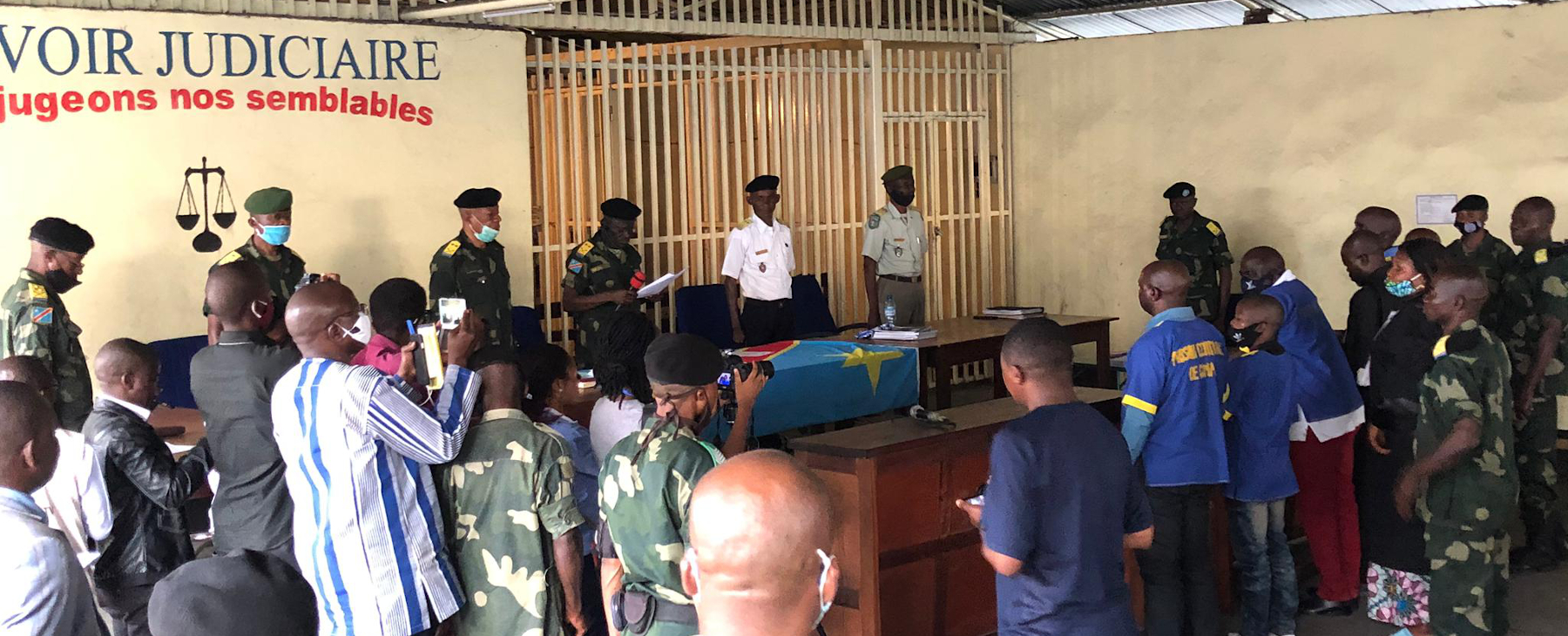
The case will be remembered as one of the longest and most complex of the last years in the Democratic Republic of the Congo (DRC). After almost two years of trial, the 337 identified victims and the thousands of pages of evidence have convinced the Congolese justice: Sheka and his accomplice Lionceau are guilty of war crimes by murder, sexual slavery, enrolment of child soldiers and – in Sheka’s case – pillage. Lionceau was also condemned for rape constitutive of crimes against humanity (see details of the crimes in the media kit). Both men have been condemned to life imprisonment. A third militiaman received a 15-years sentence; the fourth accused, without hierarchic power, was acquitted.
“We are very satisfied with this verdict” says Daniele Perissi, Head of the Great Lakes Program at TRIAL International. “Not only is it alleviating for the hundreds of victims of the NDC, but it establishes a historic precedent for justice in North Kivu. The authorities have proved today that they were capable of taking on an incredibly complex case, both from a legal and from a security point of view.”
Patient Iraguha, Senior Legal Advisor for TRIAL International in DRC, confirms: “Today’s victory is the result of a tight collaboration between the prosecuting authorities their local and international partners, among which TRIAL International and its partners Avocats sans Frontières and RCN Justice et Démocratie. Given the grip Sheka held on the region, we all needed one another.”
Justice triumphs against the odds
The decision was not a foregone conclusion when Sheka was arrested in 2017. Even behind bars, his influence was so strong that an unprecedented protection scheme was deployed for victims and witnesses (more information in the media kit).
Another specificity of the trial was the quality and quantity of the incriminating evidence. “We are not surprised that the judges confirmed the guilt of Sheka and his accomplices” says Elsa Taquet, a Legal Advisor at TRIAL International who has worked with the victims’ lawyers in the case. “From audiovisual evidence to Sheka’s own logbook, medical certificates and testimonies of child solders, the evidence against the accused was damning.”
The next steps remain unclear
What will now happen for the offenders and their victims? “We do hope Sheka will serve his sentence outside of North Kivu, so that victims and witnesses do not live in the fear of retaliation.” explains Patient Iraguha.
Above all, TRIAL International and its partners will focus on obtaining reparations for the victims. A winding procedure at the best of times, it will be even more complicated in the present case since the Congolese State has not been found guilty. Elsa Taquet says:
“We remain convinced that the State has failed in its duty to protect civilian populations, even if the judges did not retain this argument. Their decision doubtlessly complicates the victims’ access to reparations, but we will still try everything we can to ensure their rights are upheld.”
Many questions are pending and may take months to be solved. But right now, the predominant feeling is relief: justice has triumphed and one of the most feared warlords has finally been punished for his acts.
TRIAL International’s work on this case has been conducted in the framework of the Cadre de concertation, an informal network of international actors collaborating to support the work of Congolese military jurisdictions in the investigation and prosecution of mass crimes in DRC in the North Kivu province.
Exactly 25 years ago, on 21 November 1995, the Dayton Peace Agreement put an end to the war in Bosnia and Herzegovina. It was also the moment when the whole range of wartime horrors came to light. Genocide, ethnic cleansing, torture: the country now had to face the horrific crimes that had marked the conflict. And it also needed to learn how to bring the perpetrators and many victims together. But this date also marks the beginning of the division – not only of the different entities that constitute the state, but also of society – that the country is currently experiencing. Legal expert Lejla Gačanica reflects on this milestone in Bosnian history.
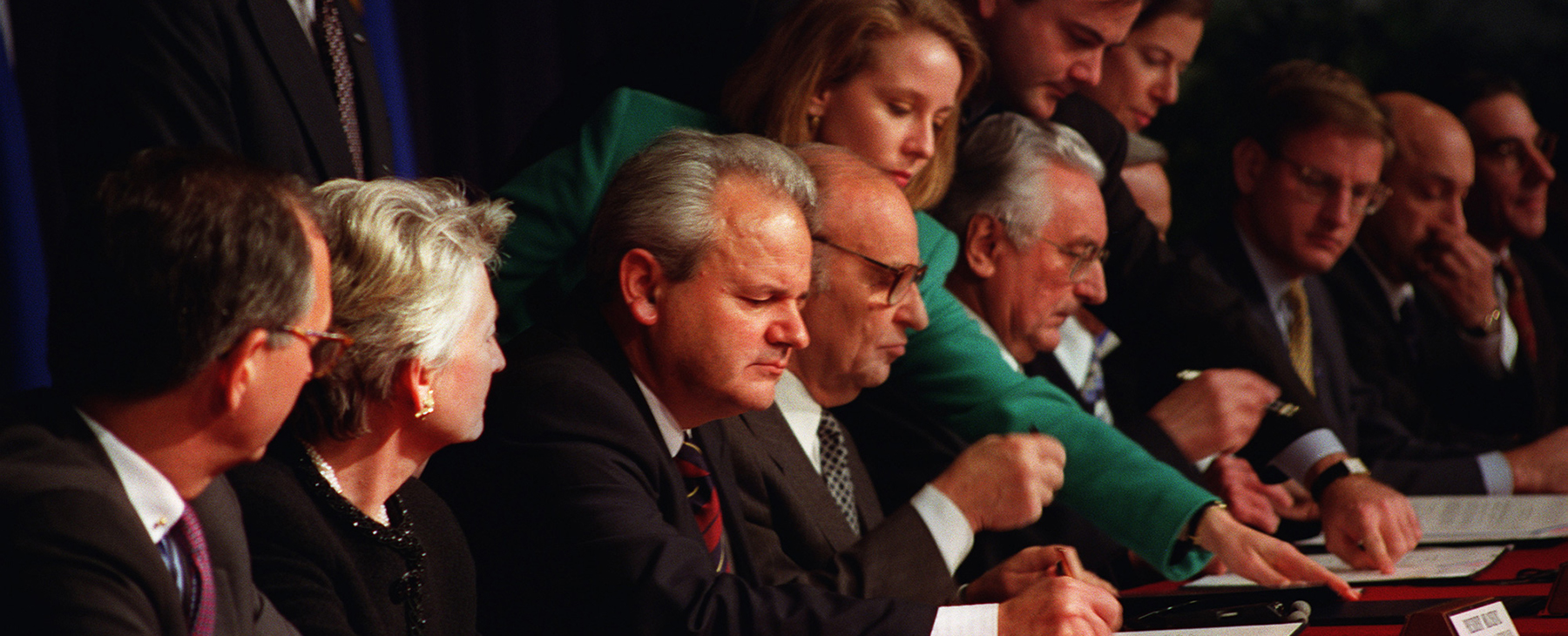
Today, the process of social, economic and political transition initiated by the Dayton Agreements is still not complete. And this despite the fact that, at the same time, ethnic entities have been built, polarised and empowered. “It is often said that the peace agreement has in fact frozen the conflict”, said Lejla Gačanica, a legal expert at ForumZFD and author of the op-ed. The divisions that served as foundations for the war have become constituencies, institutional divisions; they are presented as tools to preserve the “vital national interest”.
At a time when revisionist rhetoric is flourishing in public debate and denial of past crimes is on the rise, however, there are signs of appeasement that are encouraging for the prospect of peacebuilding. These include the recent decisions of UN bodies (Committee against Torture, CEDAW), often in close connection with the work of civil society organisations. EU accession negotiations, and the conditions set by the EU, could be an additional driver for BiH to accelerate its struggling transitional justice process.
Read Lejla Gačanica’s full op-ed
Goma/Geneva, 20 November 2020 – for immediate release. The verdict is nearing for the warlord Ntabo Ntaberi, better known by his nom de guerre Sheka, and his three co-accused. After over a year and a half of trial and several more months of deliberation, the four accomplices face a life sentence for war crimes and crimes against humanity. A resounding message as Sheka’s former wingman, Guidon Shimiray, could himself be brought to justice.
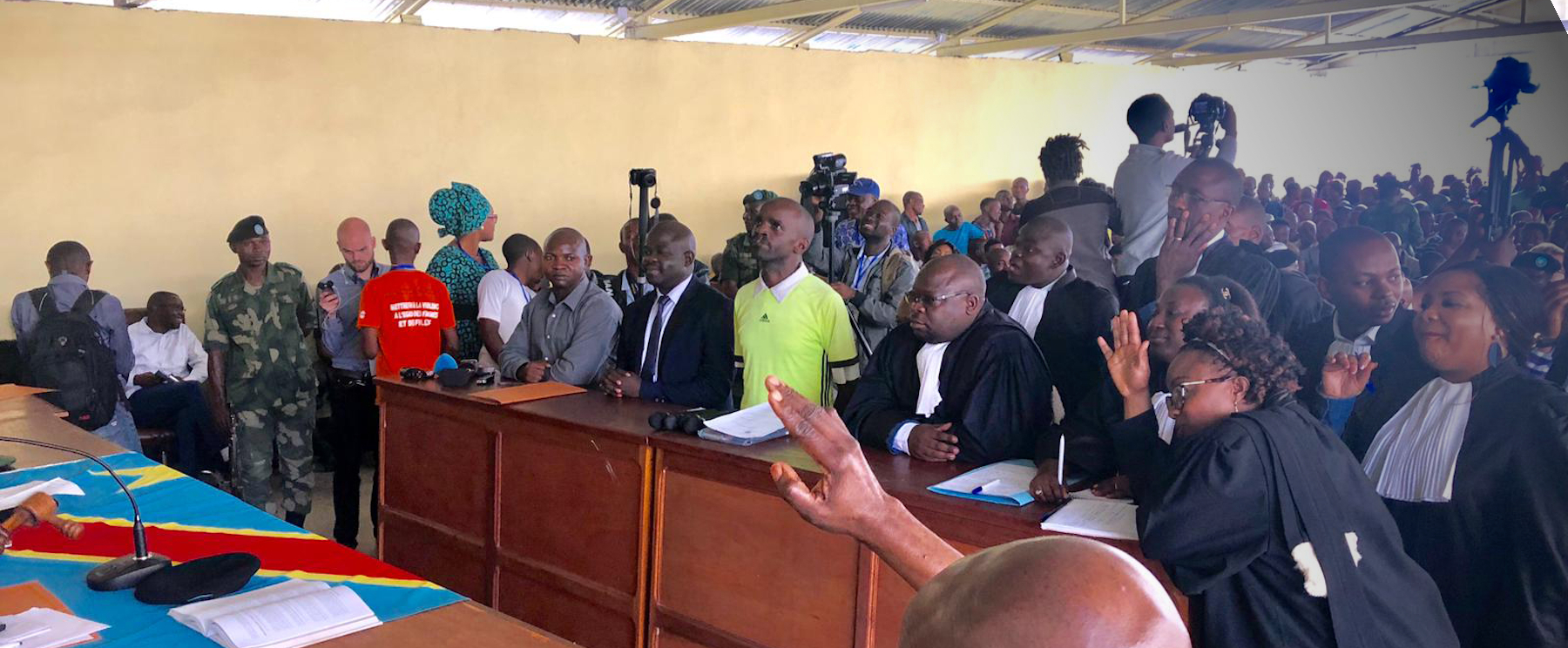
The lengthy trial of Ntabo Ntaberi alias Sheka, the infamous commander of the militia Nduma Defense of Congo (NDC), is coming to an end. Last August, Defense and Prosecution have presented their closing statements. The Prosecutor has requested a life sentence. Now the judges will have to adjudicate the guilt of the four accused for mass crimes committed in North Kivu between 2010 and 2014. The verdict is expected on Monday 23 November 2020.
Jules Ruhunemungu, Project Coordinator at Avocats sans Frontières (ASF), highlights that the participation and courage of victims have been key to the trial. “Their contribution has been a central element of the lawyers’ arguments to support the allegations against the accused. We must commend the civil parties’ will to overcome their fear and break the silence in order to fight impunity in DRC.”
Past crimes, present crimes
The international community has closely followed the trial of Sheka, and the verdict will no doubt be widely covered by the international and Congolese media. The decision is all the more important because Sheka’s former right-hand man within the militia Nduma Defense of Congo (NDC) and now one of the most feared warlords in the region, could soon be sitting in the dock too.
Flashback: in 2014, rivalry between Sheka and his wingman Guidon Shimiray led to a scission of the NDC. Since then, factions of the militia fought against each other until Sheka’s surrender to the authorities in 2017, and subsequent indictment. To this day, Guidon Shimiray and his men continue to terrorize the populations of North Kivu.
But the days of impunity could soon be over for Shimiray too. On 8 July 2020, an official statement from the NDC removed him from his rank. He is already subject to an arrest warrant since June 2019. Could Sheka’s former rival be facing justice next?
“The parallel between Sheka and Guidon Shimiray is evident”, confirms Elsa Taquet, a Legal Advisor at TRIAL International who has worked with the victims’ lawyers in the case. “Both were so high up the ladder of the NDC that they were thought to be untouchable. The trial that has just ended proves that Sheka is not above the law, no more than Shimiray who will also, one day, have to answer for his deeds.”
Putting an end to the vicious circle of violence
How to explain this repetition of history? Many armed militias in North Kivu start as self-defense groups to fight other militias or even DRC’s regular army, the FARDC, whose men have, at times, also committed crimes against civilians and their possessions. Thus, the same people who are the victims one day may take up the arms the next day… and start committing atrocities too. This is how the vicious circle of violence is perpetuated and reinforced.
During the trial, Sheka portrayed himself as the protector of civilians in Walikale and Masisi. But the methods of his militia tell a different story: mass rape, sexual enslavement, enlistment of child soldiers, mutilations and inhumane treatment of ethnic Hundes and Hutus, etc. In total, thousands of civilians have lived in fear for over four years.
According to Patient Iraguha, Senior Legal Advisor for TRIAL International in DRC, only the Congolese State can put an end to this escalation: “Civilians should not have to defend themselves, it is the duty of the authorities to guarantee their safety. This is why the State of DRC is also accused in the trial against Sheka: it has not done everything in its power to prevent the NDC’s atrocities.”
“Is Congolese justice being put to the test?” asks Dominique Kamuandu, Program Coordinator at ASF. “This trial could prove to sceptics that a judiciary answer to grave human rights violations is possible. We hope that the court will uphold international standards up to the very end and will meet the victims’ expectations on fair trial principles.”
The verdict will be read on Monday 23 November from 9am at the military court of justice in Goma (Camp Katindo).
Did Swiss businessman Christoph Huber commit pillage – a war crime under international law – by purchasing minerals from a region of the Democratic Republic of Congo controlled by an armed group? The investigation, opened in March 2018 by the Office of the Attorney General, will have to answer this question.
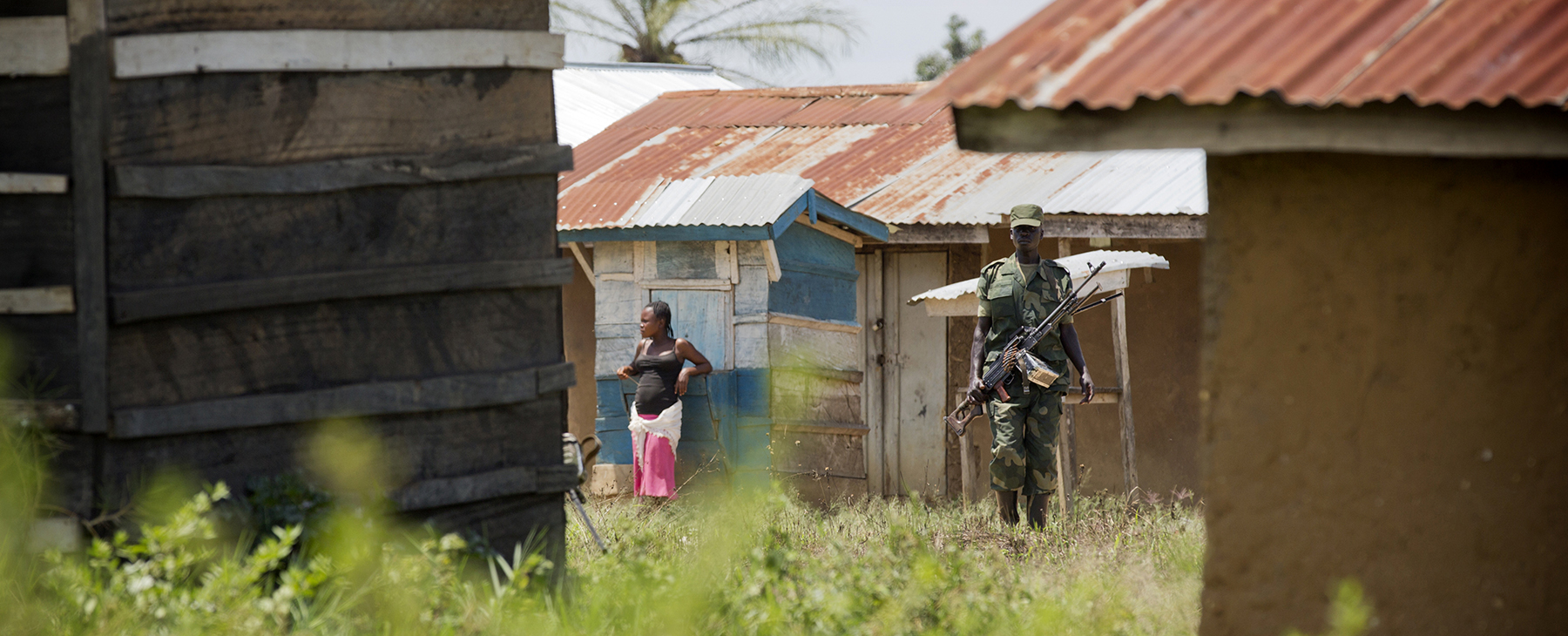
In November 2016, TRIAL International and the NGO Open Society Justice Initiative filed a criminal complaint against Christoph Huber, a Swiss businessman operating in the trade of minerals. During the second Congo war between 1998 and 2003, Huber was allegedly directly linked to the RCD-Goma, an armed group accused of war crimes that occupied – and de facto administered – large territories in the east of the Democratic Republic of Congo (DRC).
The events occurred in 2001. At that time, Christoph Huber allegedly allowed one of the companies he was working for to obtain concessions from the RCD-Goma, along with guarantees of protection by soldiers of the armed group. Huber had also been involved in the mineral trade in the region at least since 1997 on behalf of other companies, some of them Swiss-based.
Commercial documents obtained during the investigation clearly demonstrate the links between RCD-Goma and the Swiss businessman. “We had no choice but to file a criminal complaint against Christoph Huber as an individual, because the possibility of doing the same against a company is particularly limited under Swiss law”, explains Bénédict de Moerloose, head of the International Investigations and Litigation program at TRIAL International. In this case, however, the problem is even more complex because Mr. Huber’s business ties with the Swiss companies in question have meanwhile been terminated. Through this strategy, the organization therefore hopes to obtain a decision that would set a new precedent. Whether or not the Federal Public Prosecutor’s Office will follow up remains to be seen.
As in many other countries, the legal framework in Switzerland is not very restrictive for companies and relies primarily on their goodwill. There are very few legal avenues to prosecute economic actors who are accomplices in international crimes.
The introduction of a duty of due diligence, coupled with legal liability, should make it possible to directly prosecute any offending companies, and not only those who work on their behalf.
Remembrance is an essential step in the transitional justice process. With this in mind, the NGO ANEKED has created “The Duty to Remember”, a memorial intended to offer a space in which the relatives of the victims of Yahya Jammeh’s regime in The Gambia can mourn, remember and reflect. But before installing it permanently, it has been exhibited in Banjul in the spring of 2020, and will be on display in Geneva on the occasion of Human Rights Week, starting on 23 November 2020.
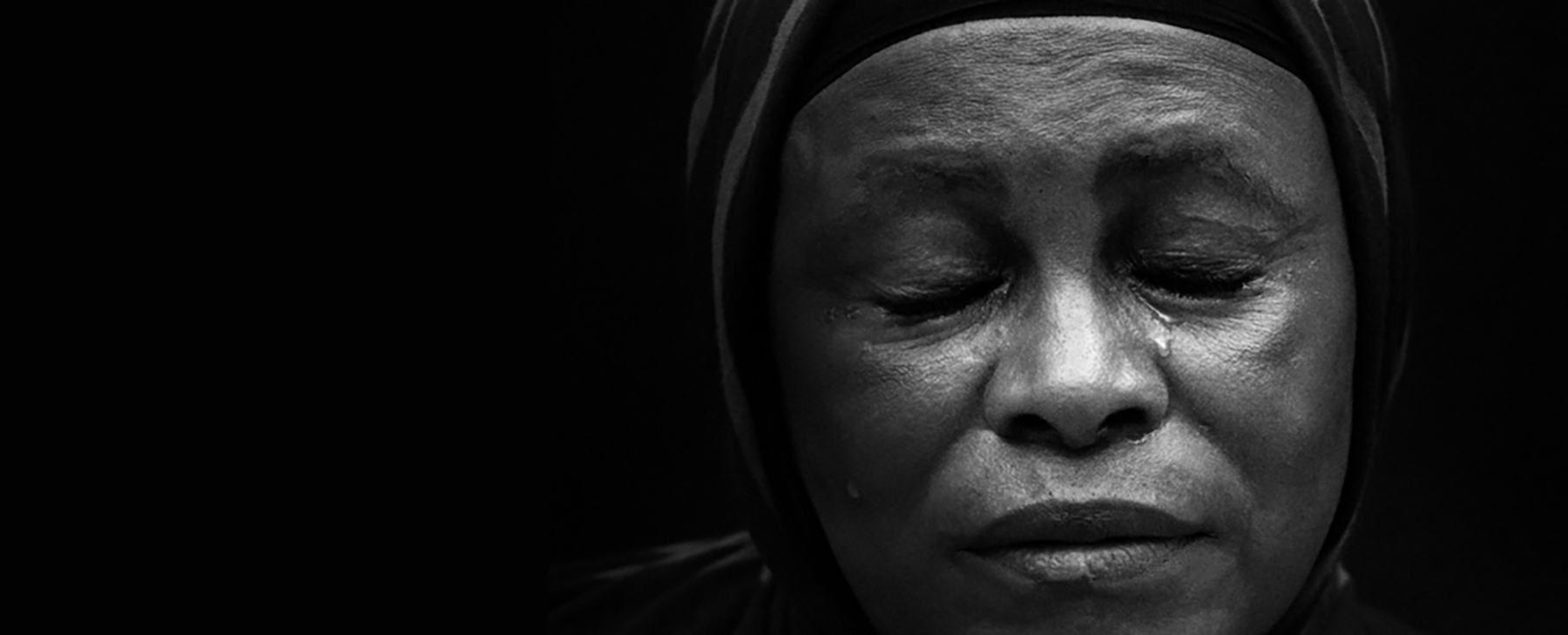
The exhibition “The Duty to Remember” features photographs, testimonies from the Truth, Reconciliation and Reparations Commission (TRRC), as well as objects that once belonged to victims of enforced disappearances and extrajudicial killings in The Gambia. It was initially to be held on the University of Geneva’s premises, but the sanitary situation forced the organizers to transform it into a completely dematerialized exhibition.
From 23 November 2020, visitors will be able to navigate through a virtual space, entirely modeled in 3 dimensions. This will enable them to immerse into two series of portraits: “Victims and Resisters”, created by photographers Jason Florio and Helen Jones-Florio, and the images produced by Gambian photographer Muhamadou Mughtarr Bittaye, as well as the objects collected from the victims’ families – also modelled in 3D.
In addition, ANEKED (African network against extrajudicial killings and enforced disappearances) will be organizing several events during Human Rights Week. These include seminars, guided tours for high school students, the screening of the documentary “I Cannot Bury My Father” and workshops.
TRIAL International is very pleased to be among ANEKED’s partners and to contribute to making the exhibition a reality, thanks in large part to the financial support of the European Union. TRIAL International will be speaking during the first seminar (upon registration) on the role of Switzerland in the use of universal jurisdiction, on 23 November 2020 at 6:30 pm.
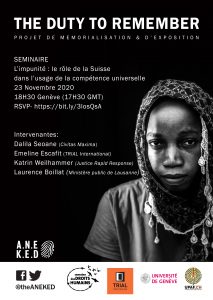 Please register to follow the conference live
Please register to follow the conference live
This project is funded by the European Union
TRIAL International is hoping the Supreme Court will back the United Nations and rule that the six-months statute of limitation violates the victims’ right to justice and reparation.

Is six months a reasonable period for victims of torture to file a complaint? Under Nepali law, this is the lapse of time they have to seek justice. After that, the crime is simply swept under the carpet and goes unpunished.
The United Nations Human Rights Committee (HRC) has repeatedly stated that this approach was contrary to Nepal’s international obligations. In May 2019 in Fulmati Nayya v Nepal (litigated by TRIAL International) the HRC declared Nepal was responsible for the violation of the International Covenant on Civil and Political Rights (ICCPR) and recommended amendment of statutory limit for claiming compensation for the cases of torture. It reached similar conclusions in two previous torture cases brought by TRIAL International : Prashanta Kumar Pandey v Nepal in October 2018 and Bholi Pharaka v Nepal in August 2019.
So far, Nepal’s authorities have ignored the HRC’s recommendations. But a Public Interest Litigation before to the Supreme Court might change the situation. On 26 July 2020, the local NGO Terai Human Rights Defenders’ Alliance (THRDA) filed a demand to amend the current provision under National Penal Code 2017 to remove the statute of limitations for torture crimes. TRIAL International and its sister organization in Katmandu, the Human Rights and Justice Centre, have closely followed the process given its involvement in HRC cases on the topic. The hearings were scheduled for November 2020 but may face delays due to the sanitary situation.
What is a Public Interest Litigation?
A Public Interest Litigation is a procedure before Nepal’s highest judicial body, the Supreme Court. As its name indicates, it must have a demonstrated interest for the general public. THRDA, TRIAL International and the Human Rights and Justice Centre have repeatedly called for the implementation of international decisions in Nepal, to no avail. They will now maintain their outreach and lobbying efforts to drive the Supreme Court to rule in favor of the victim.
If the Public Interest is successful, it would make the Nepal government liable to change the legislation in line with international standards.
Murals glorifying war criminals, graffiti of fascist symbols, fascist slogans being chanted at football matches, the denial of Bosnia and Herzegovina’s dark past is part of the everyday life of the country’s inhabitants. TRIAL International and ForumZFD have continued their collaboration that started last year by publishing two policy papers addressing issues such as denial, trivialisation or justification of genocide and other war crimes.
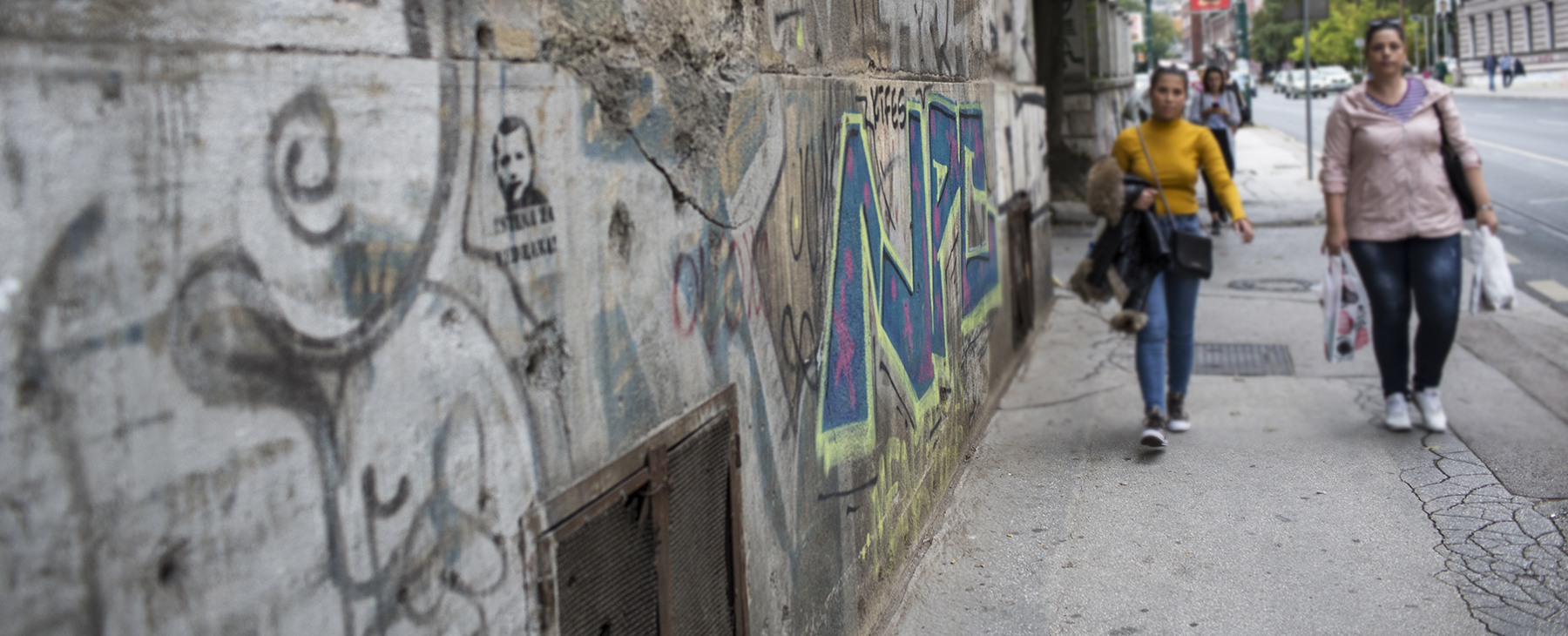
The wounds of war are still open in Bosnia and Herzegovina (BiH). Nearly 25 years after, some families have still not been reunited with their loved ones, while others are waiting for those responsible for war crimes to finally be put on trial… More recently, other problems have revived the memory of the conflict: the denial in the public sphere of crimes that are known to all – or even established by the courts – as well as the glorification of convicted war criminals.
In an attempt to address the rise of such hate speech and demonstrations, TRIAL International and ForumZFD have published two strategic documents for the attention of BiH legislators. The first policy paper stresses the need for a legal framework that would end the culture of impunity. It builds, among other things, on earlier draft laws, and aims at laying the basis for a possible regulation, and analysing its potential effects. The second one focuses on non-legislative aspects which should support BiH’s efforts to combat impunity. Education, activism, art and culture, public awareness through the media or religious communities must go hand in hand with an overhaul of the legislative framework. Only by combining these two aspects can one expect to have an impact on mentalities, and the wider society.
“These two policy papers are based on research conducted in 2019 that led to the publication of the report ‘Calling War Atrocities by Their Right Name’, as well as on subsequent discussions”, said Lejla Gačanica, a legal expert at ForumZFD and co-author of the aforementioned report. “Many people agreed on the need for a legal framework that would prohibit the denial, trivialisation, justification or condoning of crimes against humanity and war crimes in BiH. The reason for this is simple: an environment in which the denial or glorification of crimes is acceptable calls into question the judiciary and democratic institutions.”
In March 2011, TRIAL International assisted six Palestinian families with their criminal complaint against the Swiss subsidiary of the machinery manufacturer Caterpillar. In August 2007, the Israeli army had used D9 bulldozers made by the American company to demolish the homes of the plaintiffs in the West Bank city of Qalqiliya, allegedly to uncover members of Hamas. The complaint was not pursued, but the prosecutor did recognize that the Israeli army had committed war crimes.
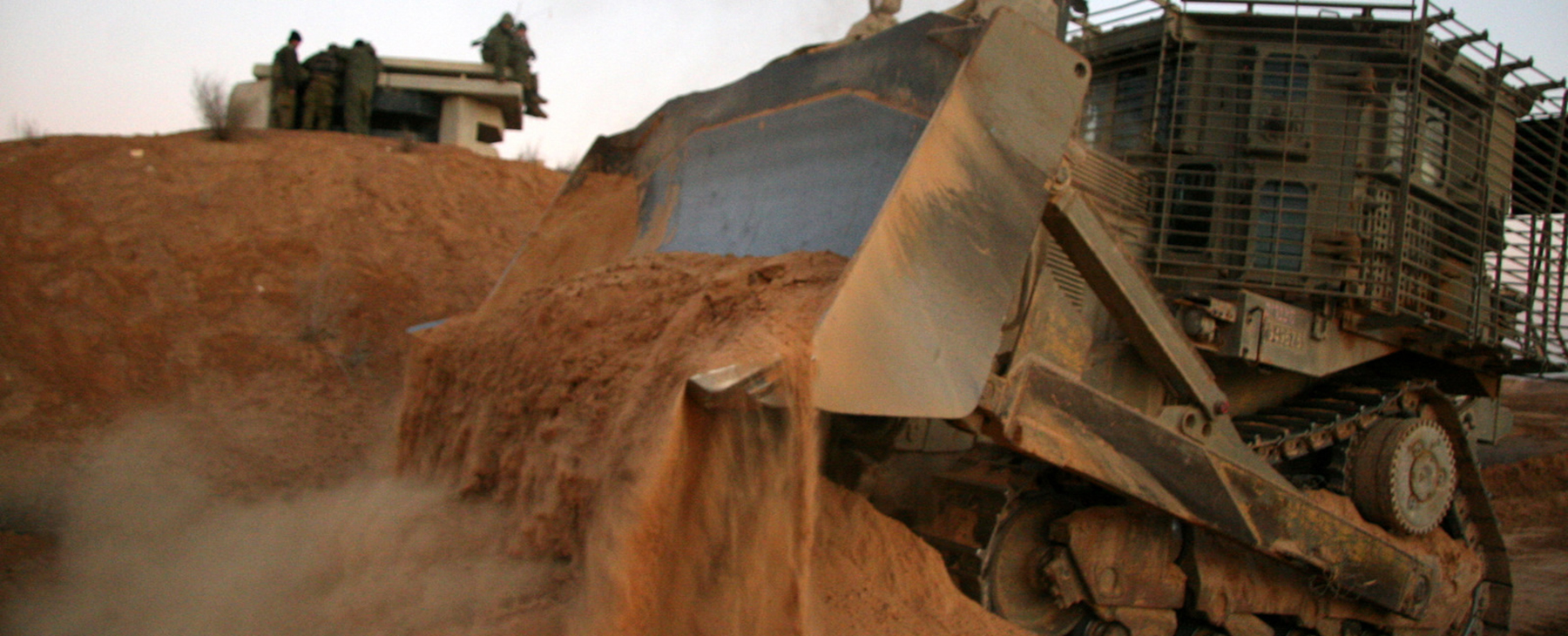
The Office of the Attorney General (OAG) closed the case in 2014 on the grounds that the bulldozers in question were not weapons, and that Caterpillar could not be held accountable for how they had been used by the Israeli Defense Forces (IDF). Given that the terrorist group sought by the Tsahal had not been found, however, the prosecutor classed the destruction as “punitive demolitions”. In other words: war crimes.
For TRIAL International, the OAG condemning the demolitions is a historic decision, because it was the first time that a country’s prosecuting authorities had found the Israeli army guilty of war crimes. Philip Grant, TRIAL International’s Executive Director, remarked that the decision represents “a strong message to all companies whose business activities violate human rights, and a turn of events that should make them think: ‘what if the next complaint is filed against us?’”.
Companies that manufacture and export machinery used in battlefields often claim to be unaware of the situation. What’s more, in this particular case the bulldozers made by Caterpillar were not considered “dual-use goods”, i.e. which can be used for both civilian and military purposes. As such, the company did not become automatically responsible when its Swiss subsidiary exported the goods. Yet by recognizing that the equipment intended for civilian purposes had instead been used by IDF to commit war crimes, the OAG went a step further. Henceforth, Caterpillar cannot claim to be acting in good faith or plead ignorance.
By adopting a regulation requiring companies to know how the goods they sell are used, Switzerland would pull the rug out from under those that try to feign ignorance. TRIAL International supports introducing stricter rules to ensure compliance with human rights for Swiss companies that conduct business abroad, especially in conflict situations and cases of large-scale human rights violations.
On 22 October 2019, four Burundian journalists were arrested and convicted on charges against state security for simply doing their job. On the first anniversary of their arrest, several organizations including TRIAL International are calling for the immediate and unconditional release of the journalists. Their prolonged detention on baseless charges is a stark reminder that, despite a recent change in leadership, the Burundian government has little tolerance for independent journalism and free speech.
Following a trial that violated fair trial standards, the four journalists were sentenced to two and a half years in prison and a heavy fine. The message sent by the courts is an attempt to intimidate and threaten other journalists from doing their work and reporting on what is happening in the country. This conviction and the continued detention of the four journalists also runs counter to Burundi’s constitutional guarantees of freedom of expression, and the country’s regional and international obligations. It is particularly inconsistent with the African Commission’s principles on access to information, which prohibit states from “arbitrarily arresting and detaining” journalists.
Hundreds of journalists and human rights defenders have fled Burundi since the start of the political crisis in 2015. Those who still live and work in the country often face threats and harassment. The release of the four journalists, Agnès Ndirubusa, Christine Kamikazi, Egide Harerimana and Térence Mpozenzi, would be an important first step towards reopening the civic space.
On November 29th, Swiss citizens will be called to the polls. They will notably be asked to vote on the Responsible Business Initiative. Launched five years ago, the Initiative calls for Switzerland to adopt rules ensuring that companies – including those operating abroad – respect internationally recognized human rights and environmental standards. At present, the responsibility of companies involved in human rights violations or environmental damage lies in a legal grey area.
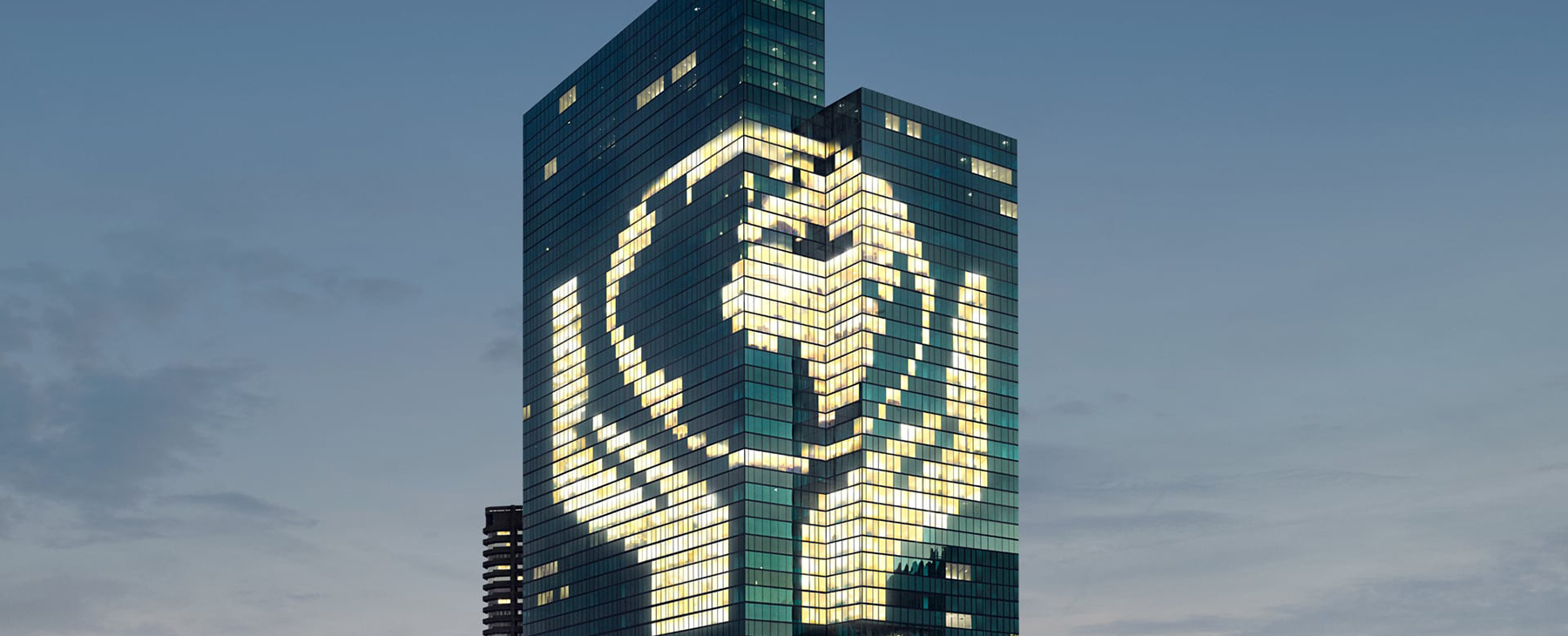
TRIAL International has repeatedly addressed cases involving companies in its fight against impunity. In nearly eighteen years of existence, the NGO has been exposing the dubious actions of multinationals in several African countries and in the Middle East, causing serious consequences on the people of the concerned countries. It has filed several criminal complaints against these companies in Switzerland. In several of these cases, the legal framework turned out to be too vague, and TRIAL International’s lawyers had to be flexible in order for the cases to be admitted. Here is a brief review of three landmark cases that have been raised by the organization.
TRIAL International is in favor of more binding regulations with regard to protection of human rights and the environment for Swiss companies operating abroad, especially in conflict situations or in the context of serious human rights violations. The organization therefore supports the call for a better regulation of Swiss based multinationals’ activities. A better defined legal framework would remove the grey areas in which most abuses are committed.
The organization is also convinced that such regulation can only be of benefit to the Swiss economy. Indeed, Swiss companies would thus guarantee exemplary respect for human rights and the environment, which may also turn out to be a strong argument for their business partners.
TRIAL International therefore invites all eligible voters in Switzerland to accept the text of the Responsible Business Initiative.
In November 2013, for the first time in its history, TRIAL International initiated proceedings against a company before a Swiss court. According to the criminal complaint submitted to the Office of the Attorney General (OAG), Argor-Heraeus SA, a company based in Ticino, may have refined almost three tons of gold mined in the Democratic Republic of the Congo (DRC) between 2004 and 2005. The gold had allegedly been pillaged by a rebel group.

During the year and a half that followed, the OAG conducted an investigation into war crimes and aggravated money laundering, resulting in the refinery company’s headquarters in Mendrisio (Ticino) being searched. The case sparked a civil society campaign against pillaging precious metals in times of armed conflict.
On March 10, 2015, the Argor case was closed. The OAG concluded that there was insufficient evidence that the company had been aware of the gold’s criminal origin. Strikingly, the federal prosecutor did recognize that the gold had indeed been pillaged in DRC by the Nationalist and Integrationist Front militia (Front nationaliste intégrationniste).
How could the company have slipped through the net? People and companies that are accused of illegal actions often justify them by claiming that they were unaware of the context in which they were conducting their activities, or of the people with whom they were doing business. Swiss law, in its present state, does not require due diligence. Companies are not legally obliged to investigate who they do business with, or where any purchased goods come from.
“Without a duty of due diligence, it is impossible to demonstrate intent, which is key to constitute pillage”, explains Philip Grant, TRIAL International’s Executive Director. “Switzerland must adopt a regulation that requires companies to know where their goods come from, as is the case of many banks that comply with ‘know-your-customer’ guidelines. Imposing a duty of due diligence means preventing that such shortcomings reoccur and prohibiting companies at fault from shirking their responsibilities.”
Recently, other Swiss companies active in the gold trade have made the headlines, including another refinery from Ticino that does business with a Dubai-based wholesaler with dubious links to militia in Darfur. Without standardized regulations, there is little doubt that such situations will occur time and again in the future.
Why do so few victims in the Democratic Republic of the Congo (DRC) receive reparations even as the number of convictions for international crimes continues to rise? A policy brief produced by TRIAL International and its partners gives details of excessively lengthy and complicated procedures. The document, endorsed by around twenty civil society players and international partners, denounces a “facade of justice” that fails to meet the requirements of international law.
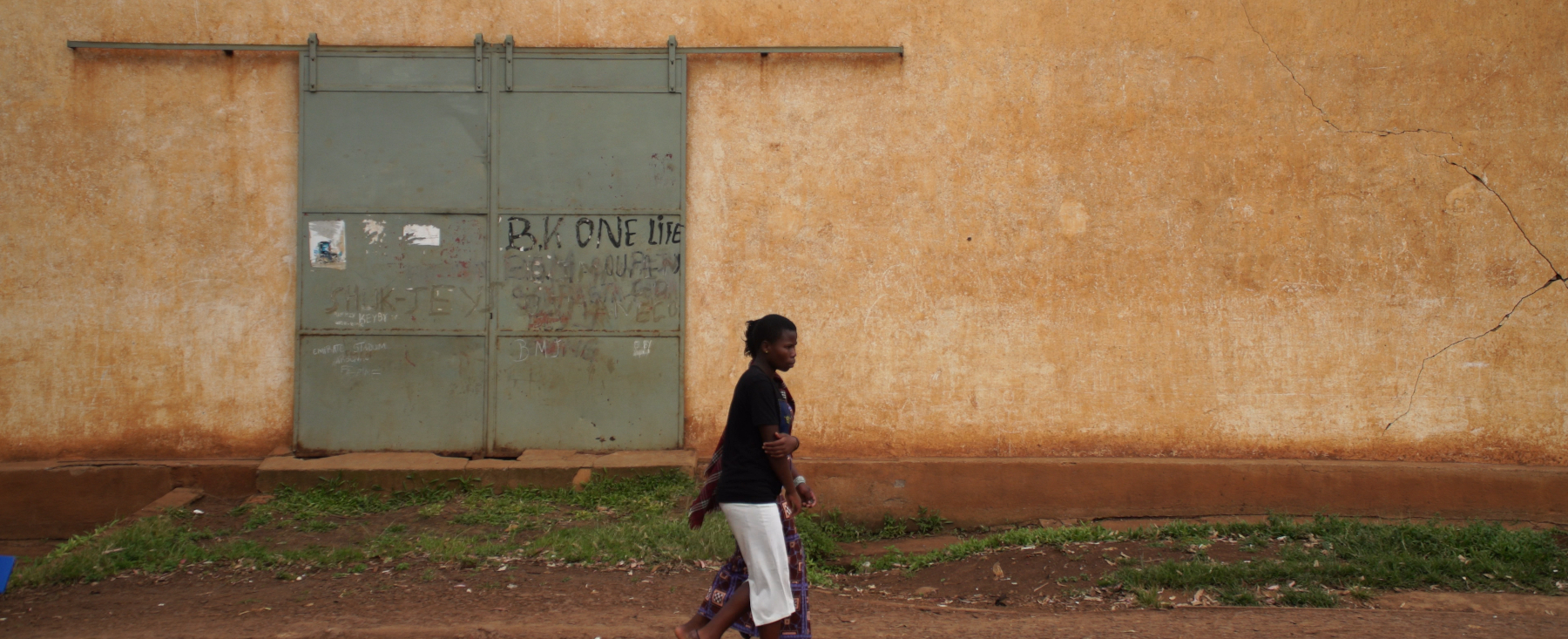
The DRC has stepped up its efforts to combat impunity since the early 2000s. Almost twenty years later, the results are mixed. Congolese courts, which are essentially military courts, have examined more than 50 cases involving war crimes and crimes against humanity. They have issued many convictions and ordered that reparations be paid to victims.
See a recent example supported by TRIAL International
This facade of justice has been undermined, however, by the very few reparations measures that have actually been implemented. According to data collected, Congolese courts have ordered that close to 28 million dollars in total be paid in damages and interest to more than 3’300 victims. The reparation orders were made when the accused was found guilty as well as the Congolese state, in solidarity, for failing to protect its population. Yet to this day, it seems that only one reparation order has actually been carried out.
A detailed policy brief proposing specific measures
TRIAL International, Lawyers Without Borders (ASF) and the Belgian NGO RCN Justice & Démocratie have published a policy brief intended for the Congolese authorities in order to understand why reparations systematically fail to be paid.
Apart from issues relating to political will, the policy brief focuses on jurisdictions where reparation orders have not been complied with, which can largely be explained by the cumbersome nature of the procedure for enforcing reparation orders. The process involves a considerable number of steps and points of contact in jurisdictions and administrations that are severely hampered by red tape and corrupt practices.
Read the policy brief in full (in French)
“We hope that the policy brief will open the door to constructive discussions with the authorities,” explains Daniele Perissi, Head of the Great Lakes Program at TRIAL International. “That is why our document includes a set of specific, realistic recommendations on how to ensure that victims receive their due.”
A deeper debate on transitional justice
While the procedure is undeniably in need of reform, both the amount and structure of the State debt call reparation arrangements into question. Under international standards, such arrangements must also offer the possibility of non-monetary measures.
Among other things, the situation is a stark reminder that the DRC must commit to a genuine policy of transitional justice and that its criminal justice system alone cannot bear the burden of ensuring that victims of mass crimes receive justice.




